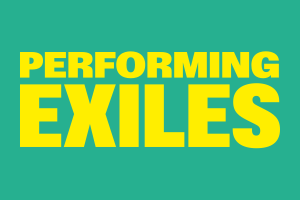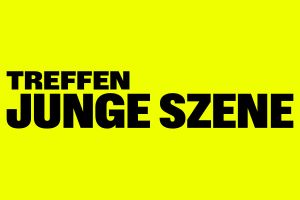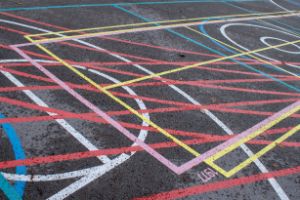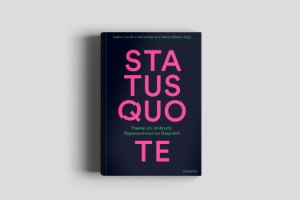
Diversity and Anti-Discrimination in Artistic Work and Projects
We wish to offer a multiplicity of artistic forms and perspectives while at the same time creating a space that is as sensitive as possible to discrimination. By doing this, we want to address a broad audience, promote marginalised artists and make an active contribution to an open society. Here we present a selection from our programme.
Guided Tours of the Gropius Bau
The Gropius Bau regularly offers guided tours of the building and its exhibitions in German and English and in German Sign Language (DGS). Tours of specific exhibitions in languages such as Turkish, Arabic and Swahili also form part of the Gropius Bau’s broad outreach programme, which includes active collaboration with community projects, initiatives and stakeholders from the immediate neighbourhood. These aim to maximise audience participation – both in person in the exhibition space and online.
Walking Through Walls. Installation view, 2019
Photo: Luca Girardini
Treffen junge Szene
The Treffen junge Szene are all about recognising and valuing the creativity of young artists. Anyone can apply, and recognition is given to work that is special and outstanding. The Treffen encourage learning from each other, provide input and are a chance for the participants to exchange ideas, advance their development and reassess their own creativity. They reflect themes and issues put forward by the young artists that concern them. The Treffen junge Szene attach great importance to selecting and programming diverse festivals as far as possible without exclusionary mechanisms, to facilitate the equable participation of all prize-winners.

Treffen junge Szene
© Berliner Festspiele
Ámà: 4 Days on Caring, Repairing and Healing
In “Ámà: 4 Days on Caring, Repairing and Healing” in 2021, the Gropius Bau produced a programme that brought together perspectives on care from the Disability Rights Movement, trans and non-binary BIPOCs and Indigenous knowledge systems. International organisations, researchers, activists and artists were invited to exchange their thoughts, experiences and ideas in performances, talks, workshops and other formats. During the programme, a Quiet Room with comfortable seating was also available, where participants could decompress, take a break and process their experiences. The central location for the four days was Emeka Ogboh’s installation “Ámà: The Gathering Place” in the Atrium of the Gropius Bau, which offered a place to come together and exchange views inspired by the idea of the village square.
Ámà: 4 Days on Caring, Repairing and Healing
Performing Exiles
The interdisciplinary festival “Performing Exiles” in June 2023 presented a spectrum of artists who have left their countries of origin for various reasons either temporarily or permanently and now feature in the cultural life of Berlin. It offered descriptions of exile that transcended the narrow terminology of taking refuge and political persecution – the biographies of many participating artists were often globalised from the start. At the same time, it also saw itself as a structural initiative and associated itself with international positions. “Performing Exiles” wanted to be a forum for artists living in Berlin, to bring together networks and perspectives and it examined the responsibility of (Berlin’s) cultural institutions towards the city’s exiled artists.
Radical Playgrounds: From Competition to Collaboration
Ein Kunstparcours am Gropius Bau
Before and during the men’s European Football Championships in Germany in 2024, “Radical Playgrounds” will focus on the differences between competitive games and free play. Competitive games have fixed rules and clearly defined winners and losers. Often they manipulate emotions as well as cultivating conflict and confrontation. By contrast, when playing freely together, anyone can change the starting situation and reinvent the rules at any time. From 27 April to 14 July 2024, this Berliner Festspiele project will bring together a sculpture park that can be clambered on in many ways, a labyrinth of outsized art works, performances and an exhibition on the history of playgrounds in the car park in front of the Gropius Bau.

Céline Condorelli, Play for Today, installation view, École de la Porte d’Eau, 2022. Photograph by Caroline Douau
© FRAC Grand Large
